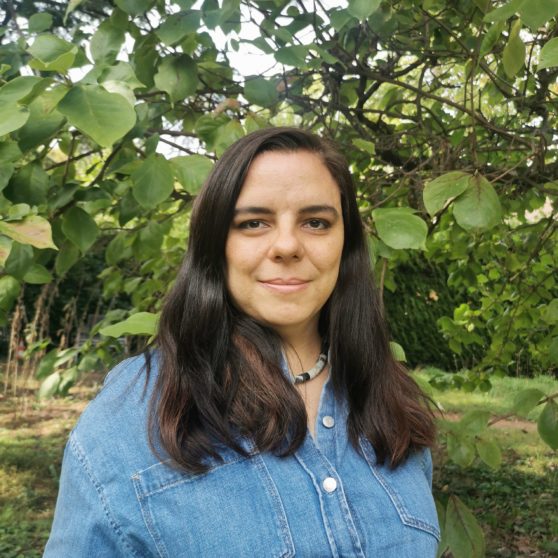Ileana Ramírez Romero
Ileana Ramírez Romero born in 1978 Caracas, Venezuela.
Researcher, editor, curator
Residency period: September to December 2025
Ileana Ramírez Romero is an independent researcher, curator, and cultural mediator based in Caracas. She is the founder and director of Tráfico Visual, a digital platform dedicated to contemporary art in Latin America. Her work explores memory, territory, and collaborative narratives across the region.
A Law graduate from the Universidad Católica Andrés Bello in Caracas, Ileana began her career in the arts in 2002 at Sala Mendoza and later served as Programming Coordinator at the Centro de Arte Los Galpones (2012–2016). She has collaborated with the Patricia Phelps de Cisneros Collection, leading initiatives such as the 2018 International Seminar Art in Context, alongside educational and artist residency programs.
Her projects include Zona de Despeje, a series of conversations on art, publishing, and memory, and Bloque Caracas by Colombian artist José Ruiz, a typographic installation revisiting modern architecture through urban memory. She has developed and presented work in Colombia, the Netherlands, and Switzerland, including Cruzando la línea (National Salon of Artists of Colombia, 2019), Morar la frontera (Goethe-Institut, Rio de Janeiro, 2022), a research residency at Melly Kunstituut (Rotterdam, 2022), and Supuestos y presupuestos (Basel, 2023), as part of the Pro Helvetia South America residency program, to which she was selected again in 2024.
Her writing has appeared in international publications such as Latin American Artists: From 1785 to Now and Vitamin V, both published by Phaidon Pres.
Project for the residency
Let’s Speak Up! is curator Ileana Ramírez Romero’s new project, born from her 2023 residency in Basel supported by Pro Helvetia. Ileana will bring together a series of interviews with migrant women — particularly those from South America living in Switzerland specially from Geneva and Basel— who not only hold leadership roles in the Swiss art scene, but whose artistic practices stand out for their commitment to community outreach, inclusion, and the amplification of situated voices.
The interviews will be edited and published on Tráfico Visual, the cultural platform Ileana founded in 2009, which serves as an oral archive of contemporary art history.
The project seeks to move beyond migration as a single defining theme, opening new horizons for an emerging community that is increasingly diverse, empathetic, and enriched by multiple perspectives on the meaning and practice of culture.

Year

